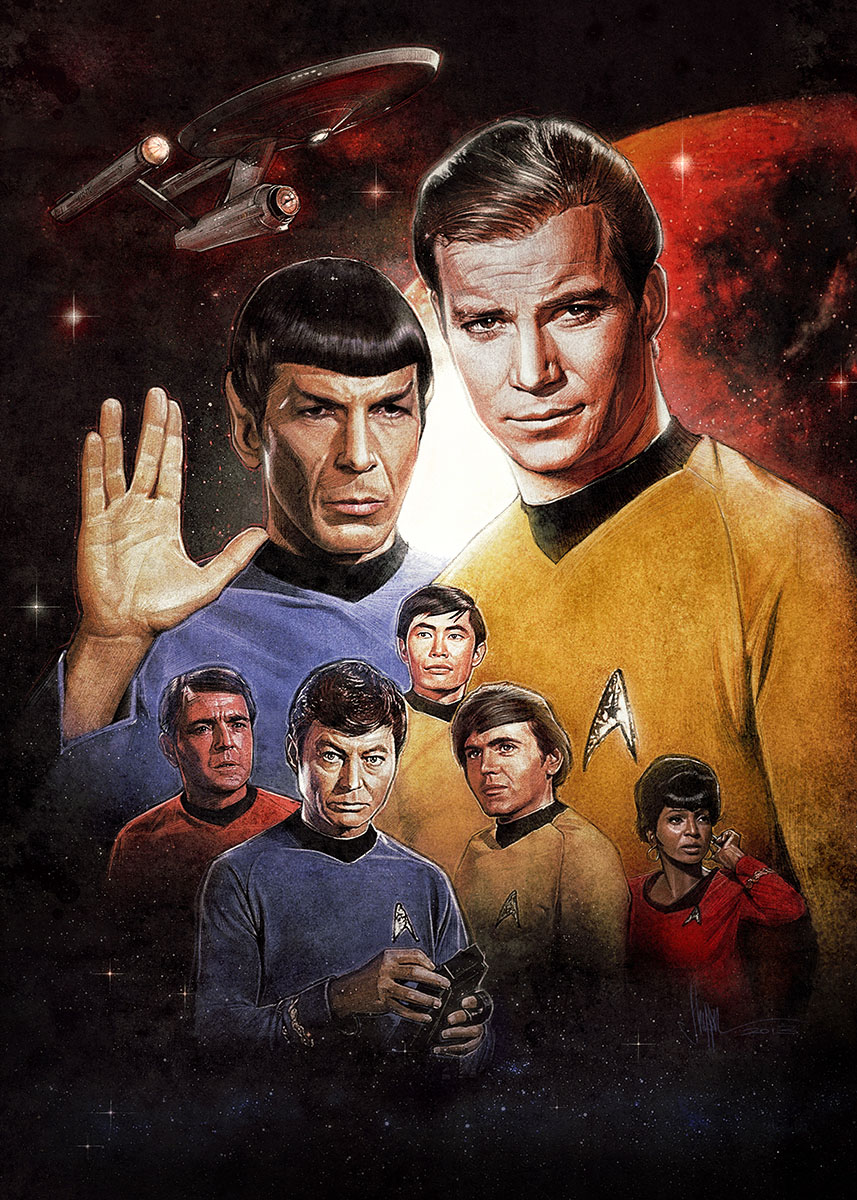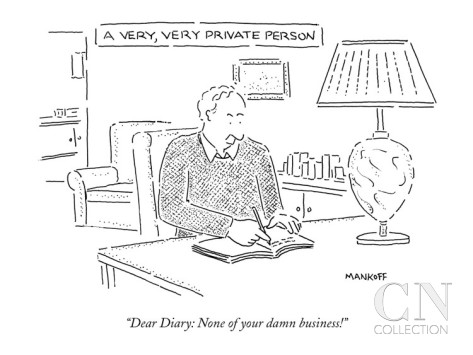
1. This week The New York Times published an op-ed by Robert A. Burton entitled “A Life of Meaning (Reason Not Required)” which argues that most people would agree that (1) our lives ought to have a personal sense of “meaning” or “purpose” and (2) our lives should be “shaped by reason” or “rationality.” Reason and rationality get a little bit fuzzy, though, when we consider the recent barrage of brain research evidencing the less-calculated “unfree” will of man. Burton explains:
“[T]he brain generates action-specific electrical activity nearly half a second before the subject consciously ‘decides’ to initiate action. Though interpretations of the results are the subject of considerable controversy, a number of subsequent studies have confirmed that the conscious sense of willing an action is preceded by subliminal brain activity likely to indicate that the brain is preparing to initiate the action…
[I]t’s hard to avoid the conclusion that the experience of free will (agency) and conscious rational deliberation are both biologically generated illusions…
We describe the decision to jam on the brakes at the sight of a child running into the road as being rational, even when we understand that it is reflexive. However, few of us would say that a self-driving car performing the same maneuver was acting rationally. It’s pretty obvious that the difference in how we assign rationality isn’t dependent upon how decisions are made, but how we wish to see ourselves in relationship to the rest of the animal kingdom, and indeed even to plans and intelligent machines.”
What makes us human is not the dignity of our alleged free will or our rational thinking but our use of such self-aggrandizing labels like “rational beings” in order to cover up innate vulnerabilities.
Burton goes on to ask what the nucleus of modern thought will be once the balloon of rationalization deflates. He suggests that the scientific method (which is the technical basis for his entire argument) may take the throne from reason and rationality. Still, problems arise: “[E]mpirical methods can’t help us with abstract, non-measurable, linguistically ambiguous concepts such as purpose and meaning.” Maybe to understand purpose, we need, not the scientific method, but Justin Bieber.
2. Over at Quartz, Jenny Anderson wrote an article on the mania of over-parenting. She addresses much of what Adam discussed in his terrific post last week, Parents in the Hands of an Angry God. The study cited in both articles comes from the University of California, Irvine; it showed that when a child was left alone, his or her parents were judged harsher when their motives for leaving were considered morally ambiguous (for example, a rendezvous with a lover). Which led the authors to conclude one thing: “People don’t only think that leaving children alone is dangerous and therefore immoral…They also think it is immoral and therefore dangerous.”
Though crime rates have generally lowered, or stayed the same, and even though it’s popular to laud moral relativism (“live and let live”), moral “judginess” is alive and well: As DZ wrote yesterday, “what looks like progress invariably hides a reorganization of prejudice.” Anderson’s article continues:
“Driving is, objectively, far riskier to a child than letting him or her walk home alone. The risk of a child being abducted by a stranger and killed or not coming home is about 0.00007%, or one in 1.4 million annually, according to Daniel Gardner, author of The Science of Fear. Car accidents are among the leading causes of death in children. Yet no-one is arguing that parents should be arrested for driving their kids everywhere.
So if parents deem safe things risky merely to justify their moralizing, isn’t the inevitable result that we will prohibit kids from doing safe things?…
Over-parenting robs children of agency, some argue, preventing them from developing critical problem-solving skills. Peter Gray, a psychologist and professor at Boston University, believes less freedom has meant less free time for kids to play, which is hurting them.”
3. Over at Tablet, our friend Liel Leibovitz, who was featured on The Mockingcast a couple months back, wrote a beautiful essay called “We Are All Anthony Weiner.” Leibovitz opens up about his persistent temptation to indulge in late-night comfort food, relating his own destructive tendencies to former congressman Anthony Weiner’s.
“[B]efore you furrow the brow or roll the eye, before you make that joke or that moral judgment, ask yourself this: Are you that different?
Have you never, like me, allowed your compulsive eating to jeopardize your health, your family life, your future? Have you never bought a bottle of vodka on Friday evening, watched it go dry by Sunday afternoon, and told yourself that you can stop whenever you choose but you just don’t choose to right now? Have you never allowed a need or an urge to grow into a snarling beast that bit everything and everyone that stood between it and its pleasure? If the answer is no, then sister, brother, you’re among the fortunate few: Most of us down here are just struggling with perpetual imperfection. We do our best to be good parents, and we fail miserably. We work hard to be the best spouses we can, and too often we let the same angers or anxieties we know only too well take over. We fail in all the familiar ways, and our failures eventually harden into monuments to a life boldly lived…
Stories like Weiner’s are compelling to us not only because of their juicy bits but also because they allow us the opportunity to reflect, at a safe distance, on our own fights and our own failings. In Weiner, then, let us see not a punchline for an easy joke but ourselves: struggling with demanding careers, trying to keep a marriage afloat, feeling lonely and in need of affirmation, tempted by the gross and transactional nature of a world now governed by soulless digital applications that celebrate nothing but the immediate relief of unbearable urges. We all mean well. We all try. We all fail.”
Our perpetual and ineluctable failures are what lead people to Twelve Step programs, firstly admitting “We are powerless…our lives have become unmanageable.”
Concerning the diagnosis of “imperfection”, Liebovitz elucidates how Judaism and its “younger and more popular sister”, i.e. us, might differ. Namely, whereas Liel and his co-religionists differentiate between different types of sin (which warrant different responses and levels of compassion), Christians see repeated failures like Weiner’s and take them as evidence of original sin, from which a person must be saved. And yet, Liel is too sly and empathetic to withhold mercy. The story he tells of the Hasidic master Reb Zusha reads uncannily like a section in Grace in Practice. Amen.
4. For humor, from The Babylon Bee: “Church Oblivious to Number of Metallica References Pastor Getting Away With.” Honestly, this is probably the case with my church.
5. The death of children’s book author Anna Dewdney has been affecting sophisticated adults all over the internet. At The New York Times, Perri Klass, M.D. wrote an essay, “The Woolly Wisdom in the ‘Llama Llama’ Books.” Klass remarks on the unassuming power in Dewdney’s stories about the trials of a toddler-age llama. At the Shop-O-Rama, the bored little llama whines, and Mama Llama responds.
“‘Please stop fussing, little llama. No more of this llama drama.’ And that’s when I, at least, know that I’m in the hands of someone who understands both sides of the public tantrum with the same good-natured perspective. There’s no deep and profound lesson to be learned here about obedience or being good—it’s about cutting the drama and getting the shopping done and going easy on each other so you can get to the fun part of the day…My friend and colleague Dipesh Navsaria…said about Ms. Dewdney: ‘She really hits the marks beautifully in terms of understanding the challenges of childhood that we as adults have forgotten, that bedtime is a separation, or leaving a child at preschool or being lost in a store.”
Ms. Dewdney’s message is so affecting because she has condescended to the perspective of a child, and any alternate agendas, if she has any, are second to love. NPR’s report ended with Dewdney reading one of her book’s conclusions:
“Little llama, don’t you know Mama Llama loves you so? Mama Llama’s always near even if she’s not right here. Llama llama red pajama gets two kisses from his mama, snuggles pillow soft and deep. Baby Llama goes to sleep.”
6. Another article from The New York Times, this one by Katie Hafner, discusses the “epidemic of loneliness” plaguing the United States and Britain. 1 in 3 people above the age of 65 live by themselves, and many of those loners are racked with despair. In the UK, loneliness has been identified as a “serious public health issue” and the government is aiming to combat it with the same vigor as more overt maladies. Arguing that loneliness finds its source in “biological underpinnings,” John T. Cacioppo, a psychology professor from the Unvierstiy of Chicago, said,
“’Denying you feel lonely makes no more sense than denying you feel hunger.’…Professor Cacioppo’s research has also shown that the danger signals activated in the brain by loneliness affect the production of white blood cells; this can impair the immune system’s ability to fight infections.”
Once again, we find science supporting age-old theology: the human need to be loved is not a far-reaching abstraction. It’s biological, engrained in the substance of who we are.
One campaigner, Paul Cann, says, “Loneliness has to be everybody’s business.” It’s no wonder that Britain is currently combatting this epidemic more effectively than America, the home of the self-reliant brave. Minding one’s business is part and parcel of this sense of self-reliance–but if loneliness is the business in question, then minding one’s own is apparently to our detriment.
7. NPR reported on All Things Considered that the “post-Olympic depression” has set in among former Olympic athletes. It’s a time when, lacking the opportunity to strive for greatness, athletes begin to feel “worthless.”
For triathlete Greg Billington, 27, of San Diego, becoming an Olympian was a driving goal for nearly 20 years. Ever since he started swimming around age 8, he wanted to qualify for an Olympic team. Posters of Olympic gold medal backstroker Lenny Krayzelburg hung on his bedroom walls.
So when Billington qualified to compete in Rio, he considered it the absolute pinnacle of achievement.
“It kind of changes who you are,” he says. “You’re trying to become the best version of yourself that exists. There’s nothing that quite grips your imagination like qualifying for an Olympic team does, so that’s what makes it hard to replace.”
The stories of Billington and other athletes reveal the insidious nature of prosperity, which is so popular in both the culture at large and the church; this is the end of the dark, obsessive path of “being the best self you can be.”
A similar story is told by 24-year-old Margaux Isaksen:
At the London Olympics in 2012, she finished fourth — so close to a medal. “I just remember thinking, wow, if I had run a second faster, or I’d got one extra fencing touch, then I would have a medal. And I just came home and I felt so defeated and so sad,” says [Margaux] Isaksen…
8. AV Club ranked America’s top ten tastiest fast foods; look if you dare. Author Kevin Pang wrote:
“I have eaten professionally for a decade, and even from my critical purview, I know that comparing fast food to more “highborn” food shouldn’t be an either/or proposition. On many levels, it can be every bit as satisfying—and let’s be honest, sometimes more so…
Of course, the thing about a cuisine that’s as democratic as fast food is that everyone has strong—and highly specialized—opinions about it, even those who might consider fast food beneath them.”
I agree with most of the list, though I do take issue with the absence of the McDouble. That is a menu item that is not flashy, not asking to be something other than what it is—should have at least gotten a mention. Auntie Anne’s pretzel dogs are rightly acknowledged.
Strays:
- Check out Alan Jacobs’s great post on success and failure.
- Our friend WenatcheeTheHatchet on Star Trek’s 50th Anniversary: “The death of Spock as a pop mythological touchstone of friendship amidst films of eros.”

COMMENTS
4 responses to “Another Week Ends: Irrational Minds, Dangerous Parents, Anthony Weiner, Metallica References, Llama Drama, Post-Olympics Depression, and the Tastiest Fast Foods in America”
Leave a Reply




















I know I’ve mentioned this elsewhere, on another week-ends no less, but post 1, about free-will and neuroscience, needs to be considered a little more seriously. It’s a huge jump to take Luther’s spiritual bondage of the will and to collapse that into a physico-somatic form where we, biologically, do not have any real will but an illusion. Even if one mashes quotes together, theologically it’s not the same thing. It’s precluding redemption, since one cannot be saved from something that is natural. And besides anthropology, this raises questions about eschatology, christology, and so on and so forth.
And on top of it, the scientist who did the research came to a different, even radical, conclusion that fits more within the best defense of free-will in the Christian tradition (Desert fathers). I ask for a response or a defense!
Hey Cal, thanks for the impassioned response!
I by no means was intending to collapse Luther’s idea of the bound will, nor was the author of the original article, I’m sure. The point that I was trying to make in my post (and what I believe Burton was getting at in his article) was not to reduce or advance a theology of the bound will–Burton readily admits in the above quote that the implications of the study are widely contested. Instead, the idea here was to show that rational thinking may not be all that it’s cracked up to be: what we assume are “rational” “choices” may very well be reflexive responses that we have little control over. The above article’s purpose is less about free will (and certainly not about christology or eschatology!) and more about throwing into question man’s ability to make rational choices–which, from there, may have something to say about the will. Maybe not. Either way, it certainly lowers the anthropology.
I’ll admit that I’m no scholar on the will, bound or free, but it sounds like you’re someone to trust with this subject! Let me know if you have any suggested reading that could get me up to speed. All best, Cj
I know the main author wasn’t trying to communicate on any of those subjects, but is predicating his talk of the non-existence of “rational choice” with the non-existence of the Human will. However, if it is really true that choice is an illusion, a ricochet from our electrical-chemical biology, then that has huge effects for thoughts as wide and varied as Christology and eschatology.
I’m just concerned where a seeming pop-science piece with a relatively low-anthropology, as opposed to the DIY mentality that seems hardwired in American society, is a bait for a pretty jagged hook of materialistic determinism. The conclusion is not wariness about our propensity to self-deceive, but that such living is a kind of fait-accompli. The former opinion is what I equated with some of the best Christian reflection, particularly Egyptian and Syrian monks in the desert. Rowan Williams has a pretty readable, short, book called “Silence and Honey Cakes” that gives an introduction to a whole host of topics.
I guess, low anthropology yes, but also aware that Christ is in the same flesh as ours, so a high anthropology also yes. Determinism of any kind, theological, scientific or otherwise, is to confuse categories and end up sneaking in self-righteousness through the backdoor. So what might pass for low-anthropology is actually a kind of weapon in the hands of the foolish. It in no way invites the magic of grace upon the soul and is just as deadly as the mickey-mouse optimism of many Americans.
I’m not an expert, but I just see this as a pitfall. I appreciate the writing you do CJ, and the work Mockinbird is doing to Seinfeldize grace for white-collar Americans who watch too much pop-culture 🙂
cal
Perhaps thru scientific advancement, we may eventually understand God’s timeless purpose in naming that little tree in that garden.
“Knowledge is here, therefore, taken disparagingly, in a bad sense, for that wretched experience which man, when he departed from the only fountain of perfect wisdom, began to acquire for himself. And this is the origin of freewill, that Adam wished to be independent, and dared to try what he was able to do.”
John Calvin on Gen 2:9